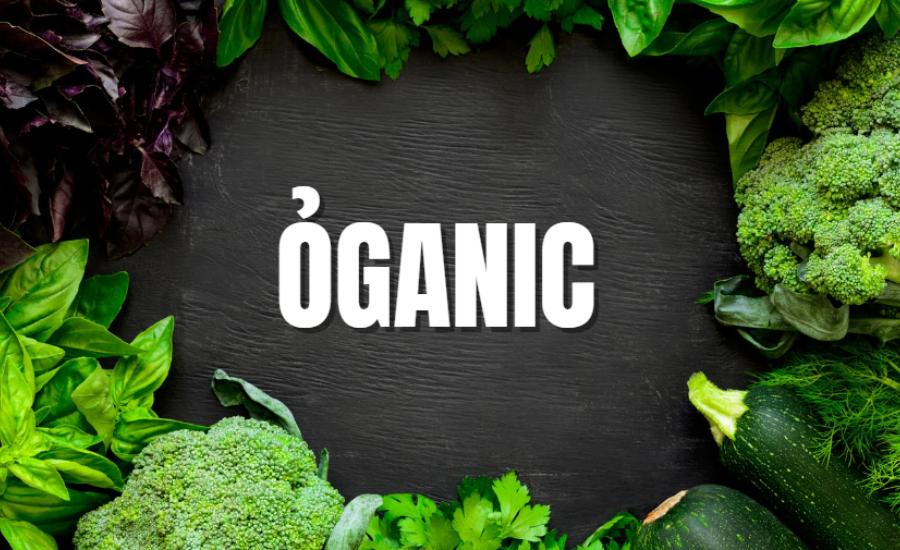In today’s society, the word “organic” is often linked to health, sustainability, and environmental responsibility. But what does it truly mean when a product is labeled as organic? This article explores the concept of organic in detail, examining its different facets, advantages, and the impact it has on consumers and the environment. We will also incorporate insights from Insider Ways to offer a holistic view.
What Is Ỏganic?
When we refer to “organic” products, we are talking about goods produced through organic farming techniques. These techniques emphasize the use of natural materials and processes to grow crops and rear animals. The overarching aim of organic farming is to nurture and enhance the health of ecosystems and all living beings, from the tiniest microorganisms to humans. By avoiding synthetic chemicals and genetically modified organisms (GMOs), organic farming seeks to create a more balanced and sustainable environment.
Organic farming practices include crop rotation, composting, and biological pest control, all of which work together to maintain soil fertility and biodiversity. This holistic approach not only benefits the environment but also aims to produce food that is healthier and safer for consumption. As more consumers become aware of these benefits, the demand for organic products continues to rise, reflecting a growing commitment to environmental stewardship and personal well-being.
The Origins Of ỏganic Farming
Organic farming has a long history, dating back centuries when all farming was naturally organic. The modern organic movement began in the early 20th century as a counter to the rising use of synthetic chemicals in agriculture. Pioneers such as Sir Albert Howard in the UK and J.I. Rodale in the US were key advocates for this cause. They emphasized the importance of sustainable practices, focusing on the health of the soil, biodiversity, and ecological balance through natural farming techniques. Their efforts laid the groundwork for the organic farming principles we recognize today.
The Benefits of Ỏganic Products
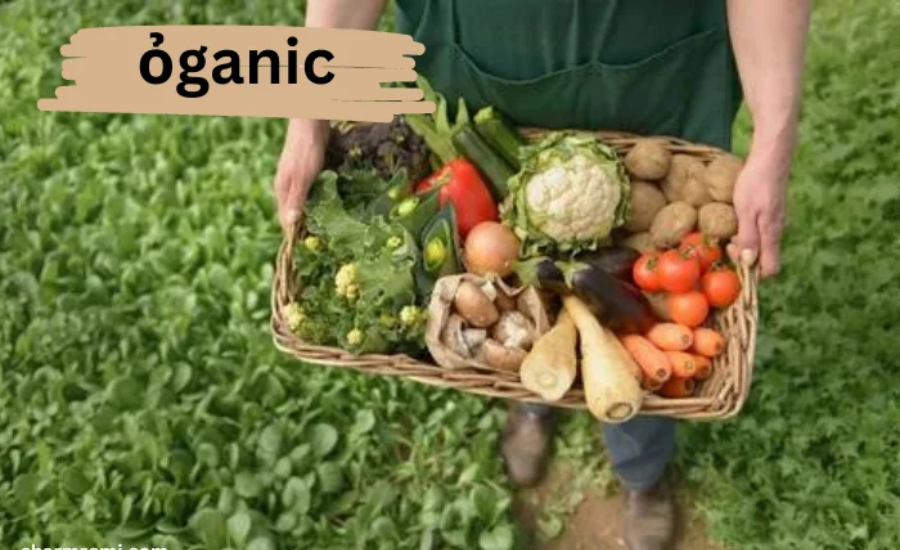
Health Benefits of Organic Products
One of the main motivations for choosing organic products is the perceived health advantages they offer. Organic foods are cultivated without synthetic pesticides, herbicides, or genetically modified organisms, which some consumers believe may be harmful to health. Research indicates that organic foods often have elevated levels of certain nutrients, including antioxidants. These nutrients play a role in enhancing overall health and may support the body’s defense mechanisms against various diseases. By opting for organic, consumers may benefit from a diet that is both nutritious and free from potentially harmful chemicals.
Environmental Benefits of Organic Farming
Organic farming practices are designed to foster a healthier environment through several key methods. These methods aim to minimize pollution, conserve water, reduce soil erosion, and enhance soil fertility. By avoiding synthetic fertilizers and pesticides, organic farming promotes ecological balance and supports biodiversity. These practices contribute to a more sustainable agricultural system, which is essential in today’s world where environmental preservation is a growing priority. Organic farming supports long-term environmental health, helping to ensure a better future for both ecosystems and communities.
Economic Benefits of Organic Agriculture
Although organic products are often more expensive than conventional alternatives, they provide significant economic advantages. The labor-intensive nature of organic farming creates job opportunities and supports local economies. Additionally, many consumers are willing to pay a higher price for organic products, which can lead to increased profits for farmers. Organic farming methods, while requiring more management, can also offer sustainable income sources and contribute positively to the agricultural sector’s economic landscape.
How To Incorporate Ỏganic Into Your Lifestyle
Starting Small: Focus on Essential Products
Embarking on an organic lifestyle can seem daunting at first, especially if you’re aiming to make significant changes. To begin, focus on incorporating key organic products into your routine. A practical approach is to start with the “Dirty Dozen” list, which identifies fruits and vegetables most likely to be contaminated with pesticides. By prioritizing these items, you can reduce your exposure to harmful chemicals. As you gain confidence and experience, gradually expand your organic selections to other foods and products.
Gardening: Grow Your Own Organic Produce
One of the most fulfilling ways to embrace an organic lifestyle is to grow your own food. Even if you have limited space, options like container gardening or joining a community garden can help you cultivate fresh, organic vegetables and herbs. Gardening not only gives you control over the conditions in which your food is grown but also offers a hands-on way to engage with organic practices. Whether you have a small balcony or access to a community plot, growing your own produce can be both rewarding and educational.
Support Organic Brands and Local Farmers
To support the organic movement, seek out brands and farmers dedicated to sustainable agriculture. Farmers’ markets and many grocery stores offer a variety of organic products from producers committed to eco-friendly practices. By purchasing from these sources, you are not only investing in healthier food options but also supporting local businesses and contributing to a more sustainable food system.
Educate Yourself and Advocate for Organic Living
Understanding the benefits of organic living is crucial for making informed choices. Take the time to educate yourself about organic farming practices, the health benefits of organic foods, and the environmental impact of your choices. Sharing this knowledge with friends and family can help increase awareness and encourage others to consider organic options. Advocating for sustainable practices and raising awareness about the advantages of organic products can drive demand and foster a community committed to environmental responsibility.
The Benefits Of Ỏganic Products
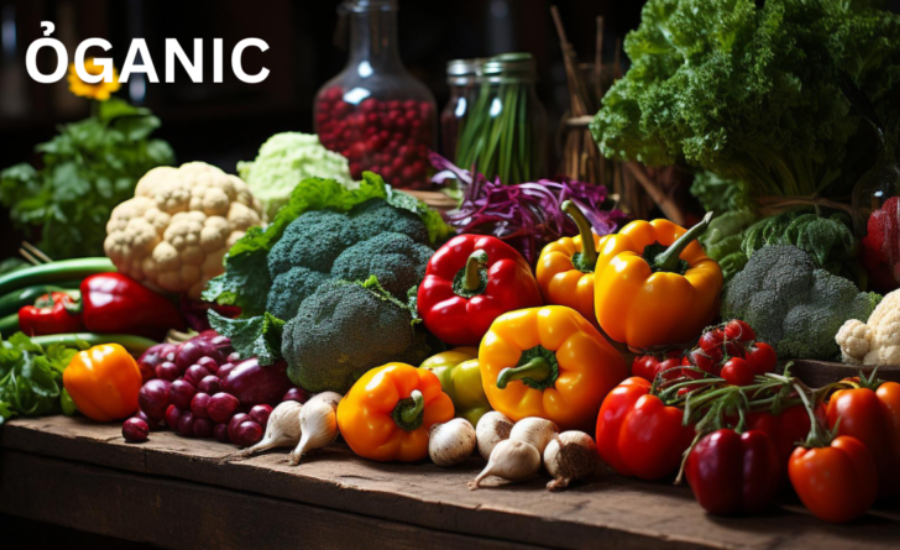
Health Benefits of Organic Foods
One of the most compelling reasons for choosing organic products is their potential health benefits. Organic foods are cultivated without the use of synthetic pesticides, herbicides, or artificial fertilizers, which many people prefer to avoid due to health concerns. Research indicates that organic produce often contains higher levels of certain nutrients compared to conventionally grown foods. For example, organic fruits and vegetables frequently offer increased antioxidant content, which plays a crucial role in protecting our cells from damage and supporting overall health.
Environmental Advantages of Organic Farming
Organic farming offers numerous environmental benefits, making it a more sustainable choice for the planet. These practices are designed to minimize pollution, conserve natural resources, and promote ecological balance. By avoiding synthetic chemicals and focusing on natural processes, organic agriculture helps protect water quality, reduces soil erosion, and enhances soil fertility. Additionally, organic farming supports biodiversity by creating habitats for various plants and animals. As we face growing environmental challenges, the principles of organic farming offer a promising approach to building a more sustainable future.
Economic Impact of Organic Farming
While organic products are often priced higher than their conventional counterparts, they bring significant economic benefits to farmers and local communities. Organic farming tends to be more labor-intensive, requiring careful management and dedication, which can generate job opportunities and support rural economies. Furthermore, the premium prices that consumers are willing to pay for organic goods can lead to increased profitability for organic farmers. By investing in organic products, consumers are not only choosing healthier options but also supporting practices that sustain agricultural livelihoods and foster economic growth.
The Challenges Of Ỏganic Farming
Navigating the Organic Certification Process
One significant challenge within the organic industry is the complex and costly certification process. To achieve organic certification, farmers must follow stringent regulations and undergo frequent inspections to ensure they meet all necessary standards. This process can be both time-consuming and expensive, creating hurdles for smaller, independent farmers who might lack the financial resources or administrative support needed for compliance. Despite these obstacles, certification is essential for maintaining the integrity of organic products and assuring consumers of their authenticity.
Increasing Market Competition
The rising demand for organic products has attracted the attention of major corporations, leading to intensified market competition. While this trend reflects a growing interest in organic foods, it also poses challenges for smaller, local producers. Large companies entering the organic market can create price pressures that drive down costs and squeeze profit margins for smaller farmers. This heightened competition can make it more difficult for independent organic producers to compete, potentially impacting their sustainability and growth.
Addressing Consumer Misconceptions
Another challenge facing the organic industry is a general lack of consumer understanding about what organic farming entails. Many people are unaware of the principles behind organic practices and may hold misconceptions about their benefits. For instance, some may confuse organic products with natural or green products, leading to misunderstandings about what organic certification means. Effective consumer education is crucial for clarifying these concepts and fostering a more informed customer base that supports genuine organic practices.
Organic Farming Practices: A Glimpse into the Fields
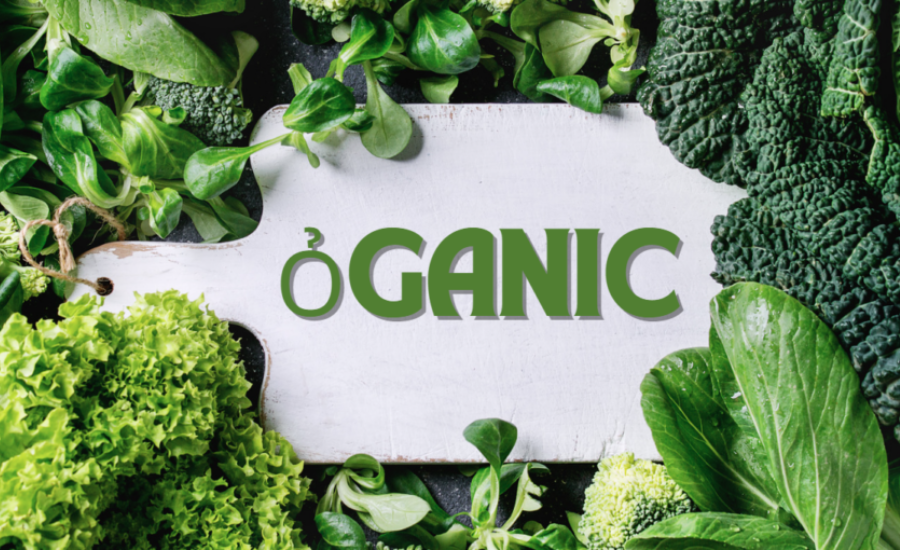
Techniques Employed by Organic Farmers
1. Crop Rotation
Organic farmers use crop rotation as a fundamental technique to promote soil health and manage pests. By alternating different crops in a planned sequence, farmers help to break pest and disease cycles, improve soil structure, and replenish essential nutrients. This practice also helps reduce the reliance on chemical inputs, contributing to a more sustainable farming system.
2. Cover Cropping
Cover cropping is another crucial method in organic farming. Farmers plant cover crops, such as legumes or grasses, during off-seasons to protect the soil from erosion and enhance soil fertility. These cover crops add organic matter to the soil, which supports beneficial microorganisms and helps manage pests naturally.
3. Composting
Composting transforms organic waste, like food scraps and garden clippings, into rich, fertile compost that can be used to nourish the soil. This process not only recycles waste but also enhances soil health by adding essential nutrients and improving soil texture.
4. Biological Pest Control
In place of synthetic pesticides, organic farmers utilize biological pest control. This involves introducing natural predators, such as ladybugs or lacewings, to manage pest populations. These beneficial insects help keep harmful pest numbers in check without resorting to chemical treatments.
5. Manure Management
Organic farmers manage animal manure through composting and careful application to enrich the soil. Manure from organically raised animals is composted to produce a natural, nutrient-rich fertilizer that supports crop growth while maintaining soil health.
6. Organic Feed for Livestock
Livestock in organic farming systems are fed organic feed that is free from synthetic additives, hormones, and antibiotics. This feed is grown without synthetic pesticides or fertilizers, ensuring that animal products meet organic standards.
Challenges Faced By Organic Farmers
1. Increased Labor and Management
Organic farming often demands more hands-on management and labor compared to conventional methods. Practices like crop rotation, cover cropping, and manual pest control require more time and effort, which can be a significant challenge for farmers.
2. Initial Lower Yields
When transitioning to organic farming, yields might initially be lower compared to conventional methods. Organic systems may take time to build up soil fertility and establish effective pest management practices, which can lead to reduced crop outputs in the early stages.
3. Higher Costs for Organic Products
Organic farming practices can be more expensive due to higher labor costs, certification fees, and more intensive management requirements. Consequently, organic products often have a higher price point, which can be a barrier for some consumers.
4. Market Demand and Price Fluctuations
While there is a growing market for organic products, the prices for these goods can be subject to fluctuations based on consumer demand and market competition. This can affect the financial stability of organic farmers, especially small-scale producers.
The Top 10 Healthiest Organic Foods
Choosing organic foods can be a great way to support your well-being and enjoy a nutrient-rich diet. Here are ten outstanding organic foods that offer exceptional health benefits:
1. Kale
Kale is a powerhouse leafy green vegetable loaded with essential nutrients. It provides high amounts of vitamins A, C, and K, and is packed with antioxidants that help combat inflammation and support overall health.
2. Blueberries
Blueberries are a delicious superfood packed with antioxidants, vitamins, and dietary fiber. They support cognitive function and help protect against oxidative stress, making them a fantastic addition to your diet.
3. Quinoa
Quinoa is a versatile grain that is not only gluten-free but also a complete protein source. It is rich in essential nutrients such as iron, magnesium, and B vitamins, making it a nutritious choice for a balanced diet.
4. Avocado
Avocado is renowned for its healthy monounsaturated fats and fiber content. It supports heart health, aids digestion, and can be used in a variety of dishes for a creamy, nutritious boost.
5. Wild-Caught Salmon
Opting for wild-caught salmon provides you with an excellent source of omega-3 fatty acids, which are beneficial for heart health and reducing inflammation. It’s a high-quality protein choice for maintaining a healthy diet.
6. Chia Seeds
Despite their small size, chia seeds are rich in essential nutrients including fiber, protein, calcium, and magnesium. They are perfect for adding to smoothies, yogurt, or salads for a nutrient-packed addition.
7. Sweet Potatoes
Sweet potatoes are not only delicious but also packed with vitamin A and dietary fiber. Their natural sweetness and nutritional benefits make them a great choice for a variety of meals.
8. Almonds
Almonds are a nutrient-dense nut full of healthy fats, protein, and vitamin E. They make for an excellent snack and can provide sustained energy throughout the day.
9. Lentils
Lentils are a fantastic plant-based protein source that also offers iron and folate. They are ideal for vegetarian and vegan diets and can be used in soups, stews, and salads.
10. Oatmeal
Oatmeal is a wholesome breakfast option that is high in soluble fiber. This type of fiber helps manage cholesterol levels and can keep you feeling full and satisfied throughout the morning.
Where To Find And Buy Organic Food
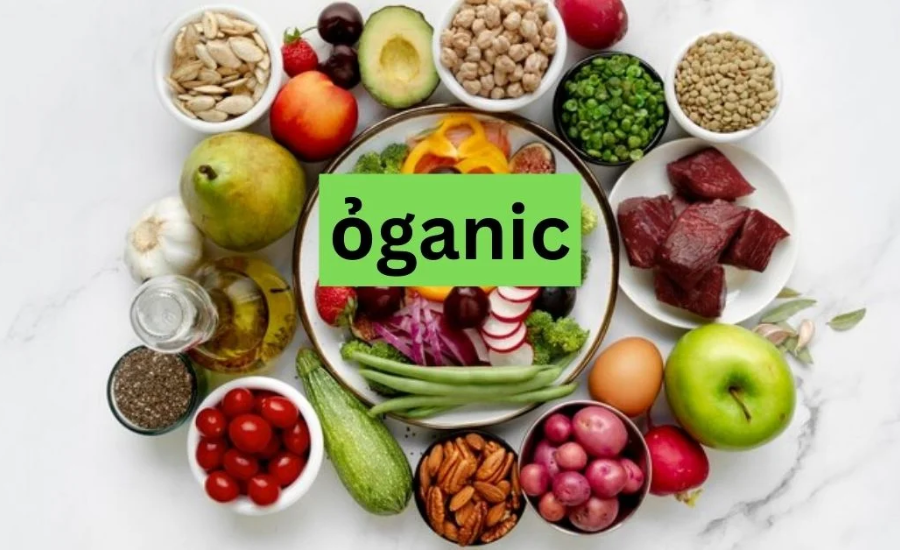
Finding the Best Organic Foods: Where to Shop for Healthy Choices
Are you eager to start your journey with organic foods but unsure where to find the best options? Fortunately, there are numerous avenues available to help you discover high-quality organic products. Here’s a guide to help you navigate your way to fresh and nutritious organic foods.
Explore Local Farmers’ Markets
Farmers’ markets are a fantastic starting point for your organic food journey. These markets offer a direct connection to local farmers and producers who follow organic farming practices. You’ll find a variety of fresh fruits, vegetables, and other organic products, all while enjoying a lively and community-centered shopping experience.
Check Out Organic Sections in Grocery Stores
Many grocery stores now feature dedicated organic sections. These aisles are stocked with a range of organic staples, including fruits, vegetables, grains, and dairy products. When shopping, look for products with the “Certified Organic” label to ensure that they meet established organic standards.
Browse Online Organic Retailers
Online shopping has made it easier than ever to access organic foods from the comfort of your home. Numerous online retailers offer a broad selection of organic products, from everyday pantry items to unique specialty goods. This option is especially useful for finding organic products that may not be available locally.
Visit Specialty Organic Stores
In addition to mainstream grocery stores, specialty organic stores focus exclusively on organic and natural products. These stores often provide a wider range of organic foods and products, making them a great destination for those looking to explore new options and find high-quality ingredients.
Join Organic Food Delivery Services
For added convenience, consider signing up for an organic food delivery service. These services offer regular deliveries of fresh, organic produce and other food items directly to your door. It’s a convenient way to maintain a steady supply of healthy foods without needing to leave home.
The Environmental Impact Of Organic Farming
When evaluating the impact of organic farming on the environment, it’s important to highlight its significant advantages. Unlike conventional farming, which depends on synthetic pesticides and fertilizers, organic farming supports biodiversity and enhances soil health. By forgoing these harmful chemicals, organic farming helps protect water quality and conserve natural ecosystems.
Organic agriculture emphasizes sustainable practices like crop rotation, composting, and natural pest management. These methods not only minimize pollution but also promote long-term soil fertility. Moreover, organic farms often prioritize animal welfare, ensuring animals have access to outdoor spaces and focusing on their overall well-being.
Choosing organic products supports practices that reduce the carbon footprint and foster ecological balance. By opting for organically grown produce and sustainably raised meats, consumers play a role in promoting a healthier planet for future generations.
The Future Of Ỏganic
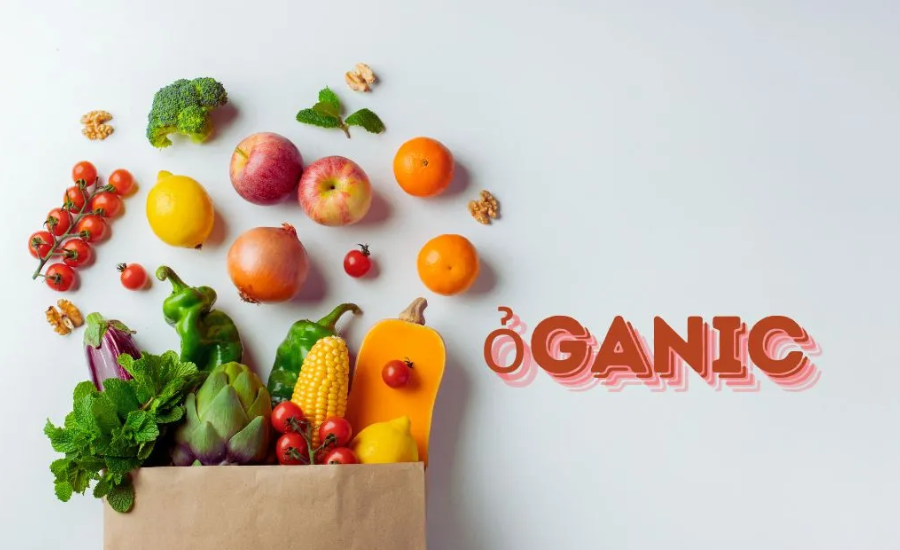
As awareness and demand for organic products continue to grow, the industry is set for significant expansion. However, this growth must be managed carefully to ensure that the principles of organic farming are upheld. This includes maintaining strict certification standards, supporting small-scale farmers, and continuing to educate consumers about the benefits of organic products.
Innovations in Organic Farming
The future of organic farming will likely see continued innovation and advancements in sustainable practices. New techniques for pest control, soil management, and crop rotation will be developed, improving the efficiency and effectiveness of organic farming. These innovations will make organic farming more accessible and affordable for both farmers and consumers.
Policy Support
Government policies and regulations will also play a crucial role in the future of organic farming. Supportive policies can help to reduce the barriers to certification, provide financial incentives for organic farmers, and promote research and development in the field of organic agriculture. By creating a favorable policy environment, governments can help to ensure the continued growth and success of the organic industry.
Q. Why Are Organic Products More Expensive Than Conventional Ones?
Organic farming is more labor-intensive and involves higher costs for certification and management. These factors contribute to the higher price of organic products, which reflects the increased effort and resources required to produce them.
Q. How can I start incorporating organic products into my lifestyle?
Begin by focusing on essential products, such as those on the “Dirty Dozen” list. You can also grow your own organic produce, support local organic brands and farmers, and educate yourself about organic practices to make informed choices.
Q. What challenges do organic farmers face?
Organic farmers face challenges such as the complex certification process, increased labor and management requirements, initial lower yields, higher production costs, and market competition from larger corporations.
Q. Where can I find and buy organic foods?
You can find organic foods at local farmers’ markets, grocery stores with dedicated organic sections, online organic retailers, specialty organic stores, and through organic food delivery services.
Q. What is the future of organic farming?
The future of organic farming will likely see continued innovation in sustainable practices, supportive government policies, and increased consumer demand. These factors will help ensure the growth and success of the organic industry while maintaining its core principles.
Conclusion
The concept of organic goes beyond just a label on products; it encompasses a commitment to health, sustainability, and environmental responsibility. Organic farming practices offer numerous benefits, from promoting ecological balance and biodiversity to providing healthier food options for consumers. Despite the challenges faced by organic farmers, the demand for organic products continues to rise, reflecting a growing awareness and commitment to sustainable living.
By understanding the principles and benefits of organic farming, consumers can make informed choices that support a healthier lifestyle and a more sustainable environment. As the organic industry continues to evolve, innovations and supportive policies will play a crucial role in its expansion, ensuring that the values of organic farming are upheld for future generations.

